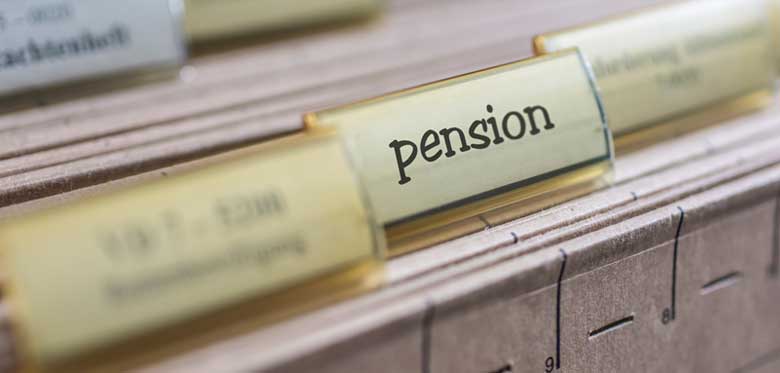Lots of us think of our house as being our biggest asset and the main thing to consider when planning what we want to happen and who we want to look after if we die. But if you have been paying into a pension for a while, you could have built up a substantial “pot” and you need to think about that.
How it is dealt with when you die depends on what type of pension it is and the rules governing it. So its well worth finding out about that and planning around it now.
Broadly there are two types of pension, defined benefit, sometimes known as final salary and defined contribution which are sometimes called personal pensions. How they work is very different.
Defined benefit schemes are disappearing and are now usually found in public service jobs or very large employers. Basically under these, the pension scheme will pay you an annual pension usually linked to your earnings and years of service. You can often agree to take a lump sum in return for a reduced annual pension, but there is usually no “pot” of money that is yours and that you can leave to your beneficiaries.
If you die there is often provision for a spouses or other dependents pension that is paid to your spouse for example at a lesser rate. Sometimes there is a death benefit lump sum paid but it depends on the rules of the scheme and when you pass away. When planning to look after your family and dependents it is important find out what the rules are and what they may get under your pension scheme. If your scheme requires you to nominate beneficiaries for any benefits you should do so and keep those nominations up to date.
The other main type of pension is a defined contribution scheme where you do build up a pot, which is usually invested. How much you get when you retire depends on how much of a pot you have built up. The pension is administered by trustees who decide where your pension pot should go if you die before it is used up. However they take into account any expression of wishes or nomination that you have made. Therefore it is important to check that you have made a nomination and that you keep them up to date. Unlike with final salary pension schemes you can usually leave your pot to a wider group of people, not just your spouse, but your children or even charities, for example.
You cannot leave your state pension to anyone as that is a personal entitlement. In some circumstances a spouse can benefit from your national insurance contributions and receive a pension themselves. So again it is worth finding out what they would get in the event of your death and taking that into account in your planning.
The other key feature of pensions is that they pass outside your estate. So you cannot leave them in your Will but they do not attract inheritance tax. The way you decide who they go to is in the nomination to your pension trustees and as they do not attract inheritance tax they can be a way of inheritance tax planning.
If your estate is of a size where inheritance tax may need to be considered, then it is very worthwhile to know your pension scheme rules and factor your pension scheme into how you want to structure your estate. For example some of the pension pot could be left to children which would give them an inheritance while some of the other assets, which would normally attract inheritance tax, could be left to a spouse which would take those out of Inheritance tax liability too.
There are some complicated rules on what income tax beneficiaries may have to pay depending on when you die and we would recommend that you take advice from a solicitor when estate planning as there are lots of other issues to consider. Our Wills and Probate team have expertise in this area and can talk you through it in a friendly and understandable way.
The key takeaways though are don’t forget your pension when looking at your assets and how your loved ones may manage if you pass away, even if you are not yet of pensionable age. Find out about the pension rules and make any nominations that your pension scheme trustees need.



Comments